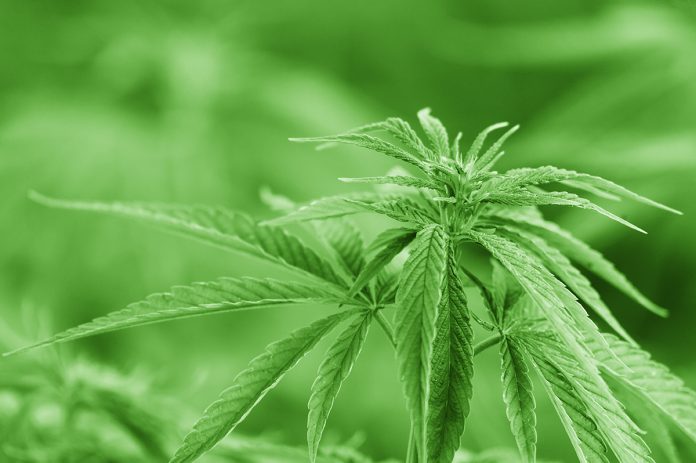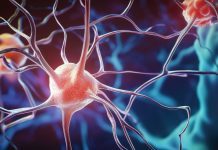CBD oil is popular for its wide-ranging therapeutic benefits, but what about its effects on ADHD? Here’s what the research shows
CBD oil, containing the CBD cannabinoid and derived from the cannabis plant, is often utilised to assist many mental and physical ailments.
Due to its versatility, CBD is often subjected to in-depth research. While CBD oil shows promise to ease many symptoms of ADHD, more studies are needed to determine whether it can be a viable treatment option.
CBD and ADHD research
Attention deficit hyperactivity disorder (ADHD) is a fairly common condition that affects children and adults from all walks of life. Symptoms including difficulty paying attention and impulsiveness often start in childhood and can contribute to trouble at school or work, reduced confidence, and strained relationships later in life (1). Treatment for ADHD often includes strong medication and therapy. Natural options like CBD are of interest to many people due to their gentle yet effective nature.
Most research investigating the relationship between CBD and ADHD is still in its early stages (2). So far, claims that have been made involve the whole cannabis plant rather than just isolating the CBD cannabinoid. More randomised clinical trials targeting ADHD patients with pure CBD oil or isolate are still needed before researchers can make conclusive claims.
However, early studies still show promise. A recent self-reported study looked at cannabis use in participants. Researchers found that individuals were more likely to report hyperactivity or impulsiveness when they were not taking cannabis (3). Similarly, a 2017 trial looked at adults with ADHD treated with Sativex, a medication containing CBD and THC cannabinoids. While improvements were minimal, a minor reduction in ADHD symptoms was still reported (4).
Can CBD help manage ADHD symptoms?
While CBD may still have a far way to go before being considered a potential ADHD treatment option, CBD oil may help relieve some common symptoms associated with ADHD.
Low focus, poor concentration, and short attention spans are common cognitive symptoms of ADHD. High levels of anxiety and depression are also associated with many ADHD patients (5). CBD can help mental clarity by interacting with specific brain receptors, improving concentration levels during work or school (6). In particular, CBD oil can ease anxiety and stress; anxiety and stress make us have lower energy levels and feel more tired, ultimately leading to poor focus and concentration.
Anxiety
The research investigating CBD’s role in anxiety and depression has been promising. In a 2015 review, researchers state that CBD could interact with cannabinoid and serotonin receptors in the brain that regulate anxiety-related behaviours. They found evidence that CBD could be an effective treatment for many different anxiety types, including panic disorder and social anxiety disorder (7).
A similar review conducted in 2020 looked at eight studies that investigated CBD’s role in assisting different anxiety forms. Researchers found CBD to be an effective complementary treatment option alongside traditional medication to ease various symptoms (8). However, many researchers still conclude that more large-scale clinical trials are needed before establishing CBD therapy (9).
How CBD oil works for ADHD
CBD interacts within the body in several ways. Studies have continually pointed out the role of the endocannabinoid system (ECS) plays in influencing brain responses such as mood, memory, and pain. Cannabinoids like CBD can interact with ECS receptors throughout the brain and nervous system to regulate many body processes, including stabilising energy levels, reducing hyperactivity, and improving focus (10).
CBD can also interact with serotonin receptors. Animal studies have shown CBD to be effective in activating multiple serotonin receptor types at once within the brain (11), allowing higher concentrations of the “happy hormone,” serotonin, to be expressed.
CBD oil for children with ADHD
Research investigating CBD and children with ADHD is minimal due to the stigma surrounding marijuana use. However, more studies are starting to be carried out as gentler treatment options with fewer side effects increase in popularity for children. This has been led with Epidiolex, a CBD-based medication for epilepsy commonly used in children (12).
Most CBD research carried out with children involves case studies, like this 2015 report. Parents completed an online poll stating they safely administer CBD products to their children. Benefits reported include improvements in sleep, alertness, and overall mood (13).
As no clinical trials involving children with ADHD and CBD have been carried out yet, if administering CBD oil to your child is of interest, talk to your doctor.
Dosage
Your child’s correct dosage will be determined by their age, weight, and severity of symptoms. As a rough guideline, about 2.5 to 10 mg daily is recommended for optimal effects. CBD oil can have an earthy, grassy flavour, so many parents like to give their children CBD gummies instead.
If CBD oil is best for their needs, try putting the oil in their smoothies, juices, or soups. A great way to do this is by pre-measuring the CBD oil to ensure the correct amount is given and then giving it to them at mealtimes.
Safety and side effects
While CBD oil is generally well-tolerated, minimal side effects can occur, especially after first-time use. These include (14):
- Changes in appetite
- Changes in bowel movements
- Headaches
- Fatigue and drowsiness
- Nausea
CBD can also interact with the metabolism of certain medications (15), so talk to your doctor if you’re worried about this or any of the above side effects.
CBD oil differs from cannabis since it’s absent of the THC compound, which causes psychoactive effects. However, lower quality CBD oils or CBD products that haven’t been properly tested may contain trace amounts of THC, so it’s essential to choose a CBD oil from a reputable company.
The bottom line
Research investigating CBD’s role in assisting ADHD treatment and symptoms is still in infancy, but studies show promise. CBD can interact with the ECS to improve common side effects of ADHD, seen in particular with children.
Please note: This is a commercial profile












